Anchorsong: the interview
The sampler savant just wants to rock
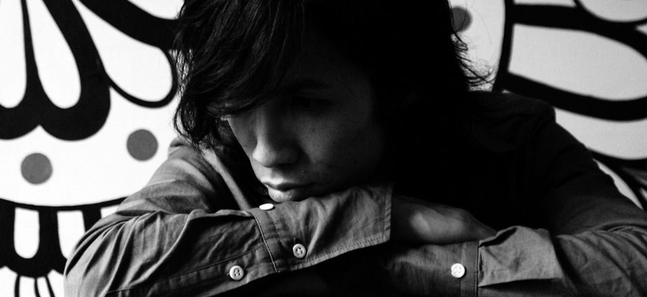
Posted: Wed Sep 21 2011
You need only spend a few minutes in the company of Anchorsong's numerous YouTube videos to realise why this Japanese beatmaker has been garnering attention recently. His gigs leave little margin for error as he builds his symphonic electronica from scratch, looping riffs and rhythms that he plays live on keyboard and an MPC sampler. Since relocating to London four years ago, the producer, born Masaaki Yoshida, has played at the Queen Elizabeth Hall, supported Prefuse 73 and DJ Krush, and had airplay on Radio 1. Most recently, he snagged a deal with British record label Tru Thoughts, who'll be releasing his full-length debut, Chapters, in November.
We sat down for a chat with Yoshida ahead of his gig at Unit this weekend, where he'll be performing with a string quartet.
You were already quite active in Tokyo before you moved to London. Did you think there would be more opportunities there, as a musician?
Yeah, I think so. I think the underground scene in Tokyo is very interesting and unique as well, but still I thought if I moved to the UK, I could do something more creative. I was always into electronic music, and apparently Europe had a bigger market and a more exciting scene. That's the main reason I moved to the UK, I think.
In retrospect, does it feel like it was the right move?
Yeah, I think so. When I went to the UK, from the very beginning, I was always an outsider. I played every kind of party – sometimes dubstep, sometimes hip hop – but I was always kind of an outsider. What I was doing was always different from everything else, in a good way or a bad way, but the audience always enjoyed my set and accepted my performance. I never felt like a stranger. The more I did shows in London, the more confident I got in my performance, and then I thought: maybe that's something I can do, because I've never seen anybody else who's doing something similar to me. So I decided to stick to my roots. Maybe it's a bit ironic, because I was looking for something fresh, but in the end I went back to my roots.
I'm interested in your background as a musician. What was the first instrument you learnt to play?
The guitar. I still play the guitar – very badly, though. I'm really poor.
Anchorsong was a rock band to start with, right?
Yes, exactly. I was the guitarist, but at the same time, I was the songwriter as well. I couldn't play the drums, but I wanted to make the songs by myself, so I was always using a drum machine and sequencers. I was quite used to doing it by myself.
If you're not a drummer, did it take you a while to get good at playing rhythms on an MPC?
Yes, I think so. Sometimes it's not about technique. I'm a fairly skilled player now – in terms of the MPC, of course – but when it comes to recording songs, the technique is not the most important thing for me. The most important part is the feeling. I always try to not record the same part again and again, because the more I do, the more I lose the feeling. So I try to make it just one chance: just play it, record it, and that's it. Even if it's a bit out of rhythm, I just have a go.
When did you start playing with a string quartet?
I think that was almost five years ago. I didn't have any string player friends at that time. I was playing at Plug in Shibuya – solo, as usual – and there was a girl dancing like crazy in front of me. I thought she was just a crazy girl, but it turned out she was a violinist. I had been thinking about playing with a string quartet for a long time. Sigur Ros, the Icelandic band, always play with their own string quartet, and I always liked that format because it's so intimate. So when I met her I suggested playing with her in a quartet, then she brought other players, and that was the beginning.
Electronic musicians tend to have a reputation for being very boring to watch live…
Yeah, yeah. (Laughs)
Have you seen any people, in London or Japan, where you were really impressed by the performance?
To be honest, almost nothing. That was actually one of the biggest motivations for me to start this project. I was always into live music, but then I became interested in electronic music, so of course I went to see their shows. But I always found it so boring. I was disappointed, because their recordings always excited me, but theirs show didn't. That's one of the motivations. I wanted to do something different, because I believed there were lots of people like that – they like electronic music, they just don't go to the gig because it's boring... Probably, my roots are too rock. I still prefer going to see live bands.
It's interesting that you keep coming back to rock music. Your album's coming out on Tru Thoughts, which I thought had more of a connection with jazz...
I think I'm a bit on an outsider on Tru Thoughts, but I still believe there's some sort of connection. Most of my favourite rock bands have something to do with funk, like Jimi Hendrix. When it comes to music, I think I feel more sympathy with bands in the '70s or '60s. At that time, I think there was no clear genre [divide] between music. Sly & The Family Stone was maybe categorised as funk, and Jimi Hendrix was rock, but still, at least to me, there was no clear difference – both of them were based on funk. In that sense, funk is one of the essences of my music...
I'm very happy with working with [Tru Thoughts]. When I was in Japan, I once sent a demo to them, and they replied but they said no. So this is kind of my revenge.
Do you think, looking back at that demo, that they should've signed you then?
No, I don't actually, because at that time I knew next to nothing about production. That's one of the biggest differences. I was always into making music, but I wasn't so crazy about the technical part: recording, mixing. I always wanted to focus on the playing and the composing. When I made that EP, I wasn't sure what to do, so I just recorded – and I didn't have any equipment, either, so I had someone else for the mixer. I wasn't satisfied at that time; I knew that record didn't meet my expectations, but I just didn't know what the problem was.
Anchorsong plays live with a string quartet at Optima, Unit, Sept 24
Tweets
- About Us |
- Work for Time Out |
- Send us info |
- Advertising |
- Mobile edition |
- Terms & Conditions |
- Privacy policy |
- Contact Us
Copyright © 2014 Time Out Tokyo










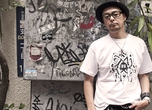
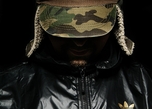
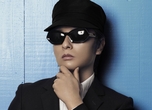
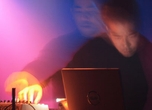
Add your comment